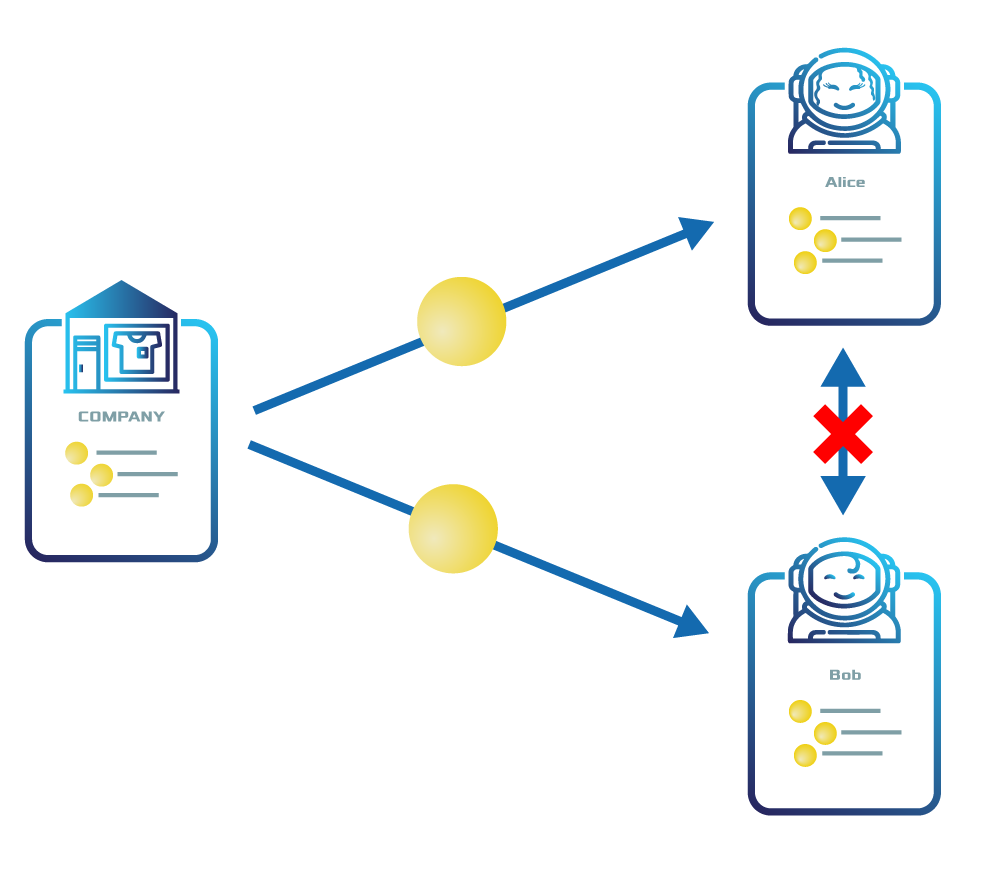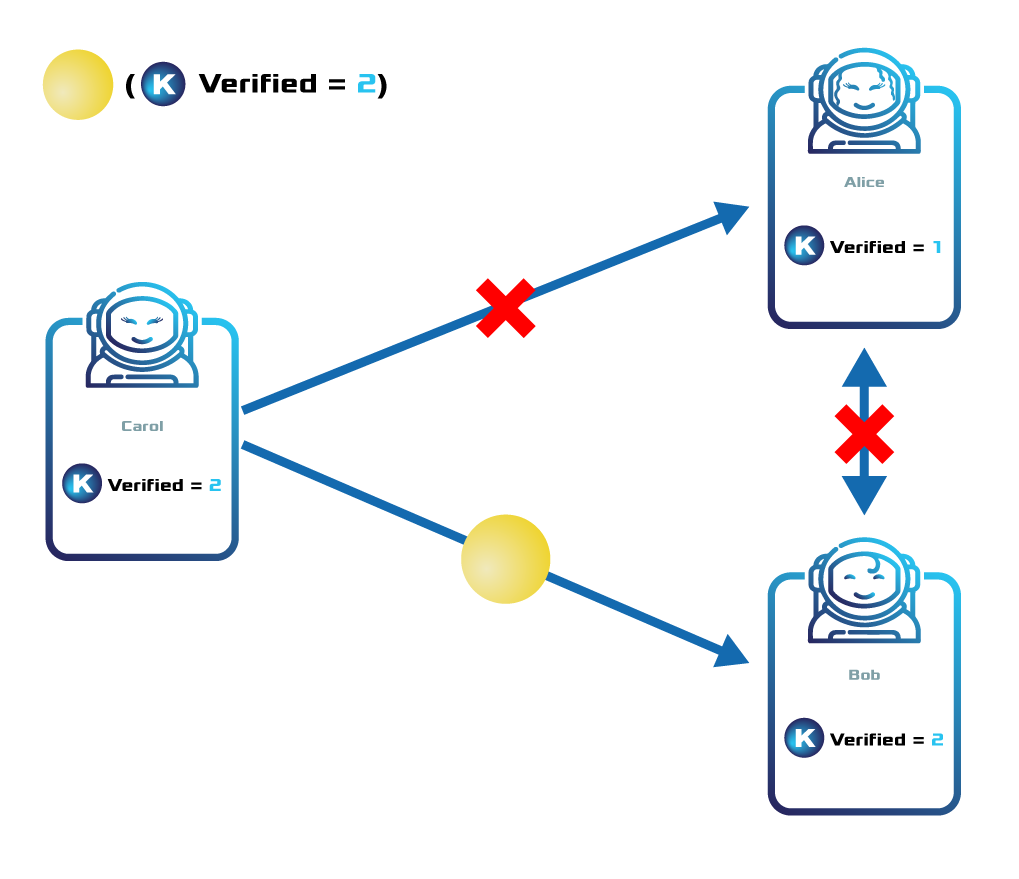Tokens are fixed assets that represent a set of multiple identical things that do not change.
A token can be what is conventionally called a token, but it can also be a collection of more specialized assets such as reward points, shares of stock, signatures, status flags, votes or other currencies, for example.
Token specialization is achieved through its properties, which are set during token creation.
Once created, each token has a unique identifier represented as a 64-bit unsigned integer. For example, Bitxor’s native currency, BXR, has the token ID 0x3D1FE6EDC7F9611E.
Note
If you create a token which should be used by other users, it is very convenient to use a Namespace to alias the token ID to a human-readable string. BXR use the bitxor alias, for example.
Determines the number of decimal places to which the token can be divided. A divisibility of 3 means that the smallest fraction a token can be divided into is 0.001.
When decimals are used units are called relative, and when no decimals are used units are called absolute. I.e., with a divisibility of 3, 1 absolute unit corresponds to 0.001 relative units. To convert from relative to absolute units multiply by 10divisibility.
Divisibility must be in the 0 to 6 range (included).
Indicates the amount of tokens initially in circulation, in absolute units.
This amount can be later changed by a TokenSupplyChangeTransaction if the Supply mutable flag (see below) of the token is set to true.
The total supply must be in the 0 to 800,000,000 range in absolute units.
Specifies the number of confirmed blocks the token is rented for.
Expiring tokens are allowed to lie in Bitxor’s public network up to 3650 days (10 years), being this maximum parameter editable per network.
Non-expiring tokens can be created by setting this property to 0.
Note
Token duration cannot be extended after its creation. Before creating one, consider if your use case requires the token to expire or not. Note that this behavior is different for Namespaces.
The following formula is used to convert days to blocks approximately:
By default, blockGenerationTargetTimeInSeconds is 30 seconds.
If set to true, the token supply can change at a later point.
In this case, the token creator is allowed to redefine the total token supply with a TokenSupplyChangeTransaction.
The transaction increases or decreases the token supply in delta units.
To decrease the token supply, the token creator account must own at least delta units.
This means that the token creator cannot remove tokens from other account balances, even if the supply mutable property is enabled.
If Supply mutable set to false, the token supply cannot be changed. However, if the token creator owns all the token supply, this is modifiable even if the token is defined as not mutable.

If set to true, the token can be transferred between arbitrary accounts. Otherwise, the token can only be transferred to or from the token creator.

If set to true, the token creator can configure custom restrictions.
Tokens can be revoked (i.e., reclaimed) by the token creator when this flag is set to true.
An account willing to create a token has to pay a rental fee in addition to the transaction fee. Both fees will be deducted from the account’s balance after the announcement of a valid TokenDefinitionTransaction.
The REST Gateway provides an endpoint to get an estimation of how much network currency will cost you to create a token:
const nodeUrl = 'NODE_URL';
const repositoryHttp = new RepositoryFactoryHttp(nodeUrl);
const networkHttp = repositoryHttp.createNetworkRepository();
networkHttp.getRentalFees().subscribe((rentalFees) => {
console.log(rentalFees.effectiveTokenRentalFee.compact());
});
const nodeUrl = 'NODE_URL';
const repositoryHttp = new bitxor_sdk_1.RepositoryFactoryHttp(nodeUrl);
const networkHttp = repositoryHttp.createNetworkRepository();
networkHttp.getRentalFees().subscribe((rentalFees) => {
console.log(rentalFees.effectiveTokenRentalFee.compact());
});
By default, creating a token in Bitxor’s public network has an initial cost of 0.5 bitxor (configurable per network by the tokenRentalFee property).
However, the network dynamically adjusts the token rental fee over time.
To calculate the effective rental fee, the network multiplies the default value set in the configuration by the network’s dynamic fee multiplier.